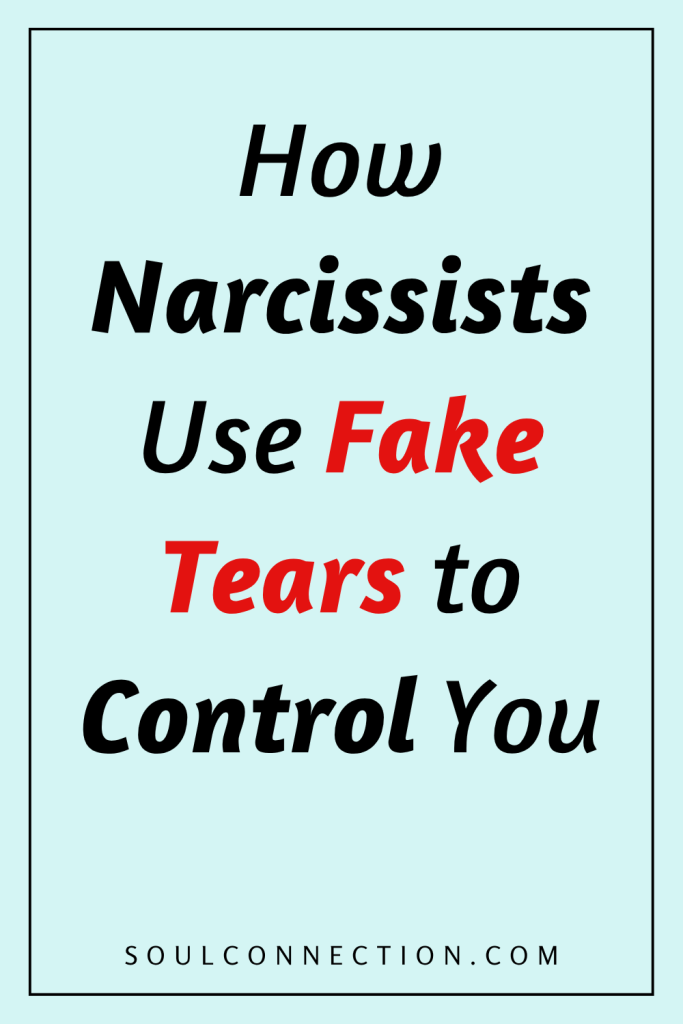If you’ve ever found yourself staring at a sniffling narcissist, desperately searching for a single genuine emotion in that Oscar-worthy performance, you’re in the right place.
Grab a cuppa, settle in, and let’s unravel the mysterious power of crocodile tears, narcissist edition.
The Moist-Eyed Manipulator
Narcissists have a toolkit that would put Batman to shame. Among the flashier gadgets—gaslighting, stonewalling, and theatrical sighs—the fake tear is their Swiss Army knife.
Why does it work? Sympathy is a superpower, and narcissists know exactly when to switch on the waterworks. Cue the trembling lip, the glistening iris, and the quavering voice: “How could you think I’d ever lie to you?”
Suddenly, you’re not angry anymore—you’re comforting them.
Emotional Blackmail by Teardrop
Those tears don’t just show up for dramatic effect. They’re a weapon.
When a narcissist senses you’ve caught onto their antics or, heaven forbid, you’re about to call out their behavior, brace yourself for the performance of a lifetime.
The goal? To flip the script. Now you’re the villain, and they’re the wounded hero. Forget whatever grievance you had, now you’re expected to fix whatever you’ve “done” to make them cry.
Feeling responsible for their sadness? That’s the plan.
Why We Fall for the Show
Let’s face it: most people aren’t programmed to question crying. Tears are supposed to signal pain, regret, or love—basically, all the gooey stuff that makes us want to hug someone or at least hand over a tissue.
Narcissists bet on this instinct. They know we’re more comfortable doubting ourselves than doubting someone’s tears. And if you’re the empathetic sort, your internal guilt-o-meter is always set to ‘overdrive’.
Their tears aren’t just saltwater—they’re a shortcut to your soft spot.
The Apology That Goes Nowhere
Ever noticed how a narcissist’s waterworks tend to erupt right when they’re meant to apologize? Suddenly, they can’t finish a sentence without choking up. “I just… I’m so hurt that you think I could…”
What’s missing? An actual apology. Real remorse involves taking responsibility, but narcissistic tears often reroute the conversation away from their own wrongdoing.
Before you know it, you’re apologizing for bringing up the issue in the first place.
And round and round you go, like an emotional merry-go-round you never wanted to buy a ticket for.
The Guilt Boomerang
Even when you’ve done nothing wrong, narcissists can deploy tears to make you feel like you just kicked a puppy. (You didn’t, by the way. But don’t bother explaining that to them.)
Any attempt to address your needs, set boundaries, or protect your sanity might be greeted by sniffles and wounded eyes. Suddenly, you’re the bad guy for ‘hurting’ them.
The guilt is so thick you could spread it on toast.
Is It Real or Is It Just Another Episode?
There’s a difference between genuine emotion and a performance worthy of a Daytime Emmy. But narcissists are great at blurring the lines. How can you tell if it’s the real deal?
Watch for patterns. If tears always show up when they’re caught out, confronted, or asked to be accountable—yet magically vanish when the heat is off—your instincts aren’t lying to you.
Real emotion leads to changed behavior. Narcissistic tears lead to, well, more narcissism.
The “Poor Me” Routine
The world is so unfair to narcissists, isn’t it? Nobody understands them. Life is hard. You’re too demanding. They just want to be loved (on their terms, obviously).
This routine isn’t just about getting you to back down. It’s about keeping the spotlight firmly on their needs.
Your pain? Irrelevant. Their suffering? Front and centre, with orchestra music swelling in the background.
And who ends up playing the villain? That’s right—the person who dared to need something from them.
When Tears Turn to Rage
Not all fake tears remain soft and weepy. Sometimes, when you don’t fall for the act, narcissists switch gears with dizzying speed. Tears dry up, voices get sharper, accusations start flying.
“How could you be so heartless? Look what you’ve done to me!”
If you’re suddenly defending yourself against a barrage of insults, that’s your cue: the show has moved to a new act. The goal is still control—the tools just get a bit louder.
How to Respond Without Getting Sucked In
Here’s the good news: you’re not required to play along.
Stay calm. Acknowledge the emotion (“I see this is upsetting for you”), but don’t let it derail the topic. If an apology is owed, keep it specific: “I’m sorry you feel that way, but I need to talk about what happened.”
Boundaries are your friend. If the conversation keeps turning teary and off-topic, take a break or suggest talking later. You’re not being cruel—you’re refusing to be manipulated.
Building Your Emotional Radar
Trusting your gut is more than just a cliché from your nan.
If your conversations always end with you feeling guilty, exhausted, or walking on eggshells, that’s a sign something’s rotten in Denmark.
Emotional manipulation likes to work in the shadows; shine a light on it by talking to friends, journaling, or speaking with a therapist.
Giving yourself permission to question those tears doesn’t make you a monster—it makes you someone who values genuine connection over emotional power plays.
When It’s Time to Step Away
Persistent fake tears aren’t just annoying—they’re a sign of deeper issues in the relationship. If you find yourself constantly managing someone else’s emotions at the expense of your own, consider what you’re getting in return.
Healthy relationships don’t rely on guilt trips, crocodile tears, or emotional bait-and-switch tactics. And if you need a reminder, there are people out there who can cry real tears with you—tears that heal instead of hurt.
Turning Down the Waterworks
Spotting manipulative tears is a skill, not a superpower. It takes practice, and you’ll probably fall for it a few more times—hey, nobody’s perfect.
Next time the theatrics begin, remember: you’re allowed to be compassionate without being a doormat. Empathy isn’t about erasing your boundaries for the sake of someone else’s performance.
Keep your tissues handy, but save the real sympathy for those who deserve it.


